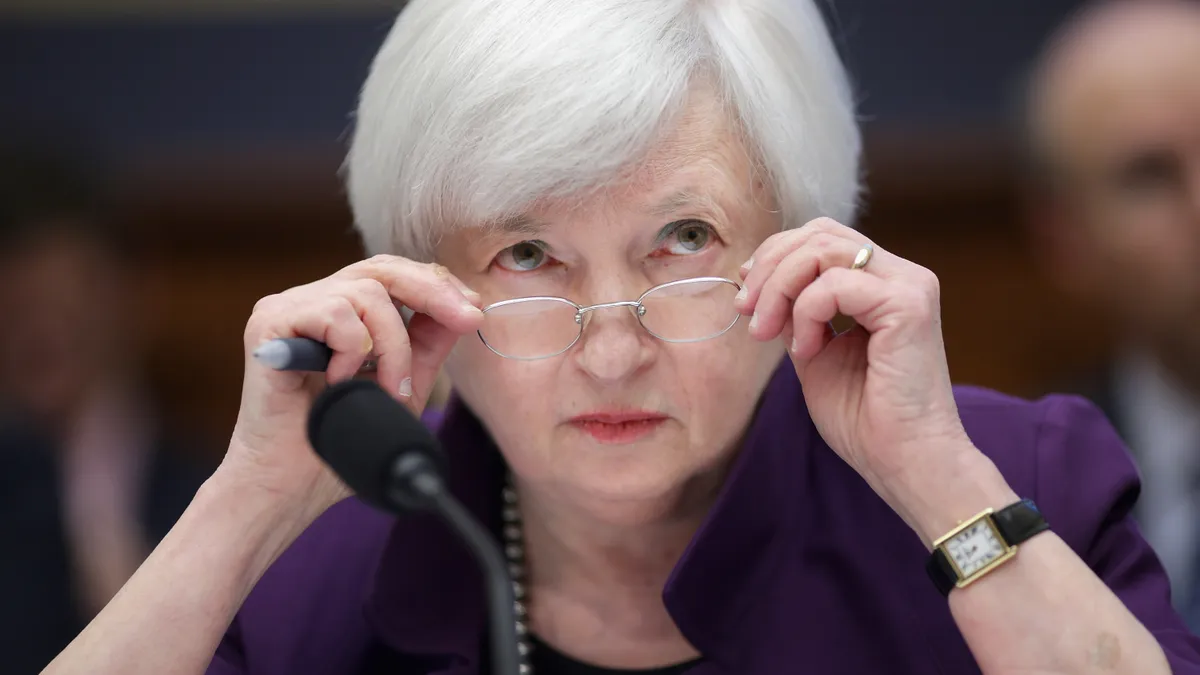Treasury Secretary Janet Yellen on Tuesday unveiled a new financial inclusion strategy designed to improve access to transaction accounts and enhance consumers’ financial resilience and well-being.
While speaking at the American Bankers Association’s annual convention in New York City, Yellen launched the National Strategy for Financial Inclusion — a roadmap for the public, private and nonprofit organizations to help communities participate in the U.S. financial system with the tools needed to build wealth.
“Access to financial products and services is essential to creating opportunity for all Americans,” Yellen said in a press release. “For the first time, Treasury’s strategy provides a national roadmap to expand access to foundational financial tools like credit and investments that are key to building wealth. Implementing these recommendations will help more families build financial security and get ahead.”
The strategy, requested by Congress in 2023, is a result of a year’s worth of research and inputs from experts, community leaders, industry representatives, the public and other federal agencies.
The strategy, aimed at promoting financial inclusivity and reducing the wealth disparity, focuses on five core recommendations:
- providing access to transaction accounts that meet consumer needs;
- facilitating access to safe and affordable credit;
- enhancing the inclusivity of government-backed financial products and services;
- expanding fair access to savings and investments; and
- strengthening the trust in the U.S. economic system by protecting consumers from fraud.
Yellen emphasized the need to increase retirement and emergency savings opportunities and unbiased financial education to help Americans achieve economic stability. She called on banks to help facilitate payments and offer credit, adding that the Treasury Department would continue to seek partnerships with banks to advance the strategy.
“It’s clear that banks of all sizes have been crucial partners in moving forward many of our top economic priorities,” she said. “This strong and important collaboration ... must continue.”
A survey by the Federal Deposit Insurance Corp., published in 2022, found that roughly 4.5% of Americans — or 5.9 million households — lacked a bank or credit union account. That represented the lowest national unbanked rate since 2009. Government relief payments issued in response to the COVID-19 pandemic led to a drop in unbanked households, the agency asserted. However, the unbanked and underbanked rates remained higher among nonwhite communities, according to the survey.
The FDIC report also highlighted the prevalence of online payment services like PayPal and Venmo. While banked households used these services in conjunction with their bank accounts, unbanked households often used them as a substitute for a traditional bank account, the FDIC said.
Yellen noted the evolving role of nonbanks in the financial space and the challenges they pose to traditional banks.
“We will continue to monitor and address risks posed by the nonbank sector, including private credit and fintech, and its interconnections with banks,” Yellen said.
Discount window, liquidity stress
The treasury secretary highlighted the vulnerabilities exposed during the 2023 banking turmoil and assured that the department would continue to work with financial institutions to address those, including increases of uninsured and concentrated deposits and unrealized losses on loan and securities portfolios.
“This means ensuring that banks are prepared for liquidity stress, including having diverse sources of contingency funding and the capacity to borrow at the discount window and periodically test this capacity,” Yellen said.
Fraud, AI
Yellen emphasized the treasury department’s crackdown on cyber-related crimes through its Project Fortress, saying her department uses artificial intelligence to fight financial fraud.
“Fraud is becoming a huge problem,” Yellen said, noting a surge in fraud around government checks, Bloomberg reported.
AI has “really made a dramatic difference in our ability to detect and deal with fraud,” Yellen said.
Treasury is also working to stop illicit finance in the residential real estate and investment adviser sectors. She applauded banks for reporting suspicious activities that have led U.S. authorities to seize billions of dollars involved in illicit finance.














